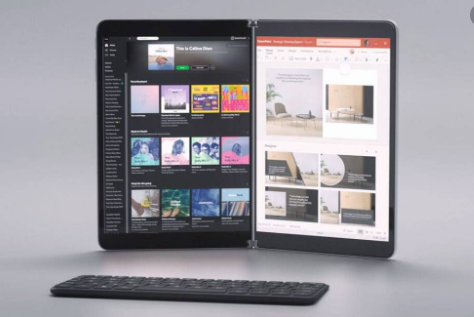Windows 10X Officially Cancelled, Microsoft Says Its Features Will Come to Other Windows Editions

Windows 10X has been officially dropped and Microsoft says that it will instead use some of its features in upcoming Windows versions. The official confirmation of Windows 10X being cancelled comes a few days after a report claimed that its resources were being shifted to other Windows 10 versions. Microsoft shared the development in the blog post about Windows 10 updates. Windows 10X was meant to function on dual-screen devices and foldable PCs and was originally planned for a 2020 release. It was to be an alternative to Google’s Chrome OS.
Last week, an outline citing people familiar with the matter had claimed that Windows 10X will not be shipped this year either, and it may “likely never arrive.” Instead, some Windows 10X features were said to trickle down to Windows 10. Now, Microsoft has confirmed this through a Windows 10 21H1 feature update blog post. The company says that Windows 10X should not be confined to a subset of customers as the original intention with Windows 10X was for it to work on dual-screen and foldable PCs. Microsoft adds that it has decided to use the technology of Windows 10X in more ways and serve more customers, which means it will integrate its features in other Windows editions and Microsoft products.
“We concluded that the 10X technology shouldn’t just be confined to a subset of customers. Instead of bringing a product called Windows 10X to market in 2021 like we originally intended, we are leveraging learnings from our journey thus far and accelerating the integration of key foundational 10X technology into other parts of Windows and products at the company,”
Windows 10X was declared in October of 2019 as a new operating system designed specifically for dual-screen foldable devices. At the time, it was planned to release in 2020. In April last year, Microsoft delayed the launch of Windows 10X. Then in May 2020, Microsoft announced that it will be changing its plans for Windows 10X a bit and will release it for single-screen devices first. The OS that was meant to compete with Google’s Chrome OS now stands cancelled altogether.






